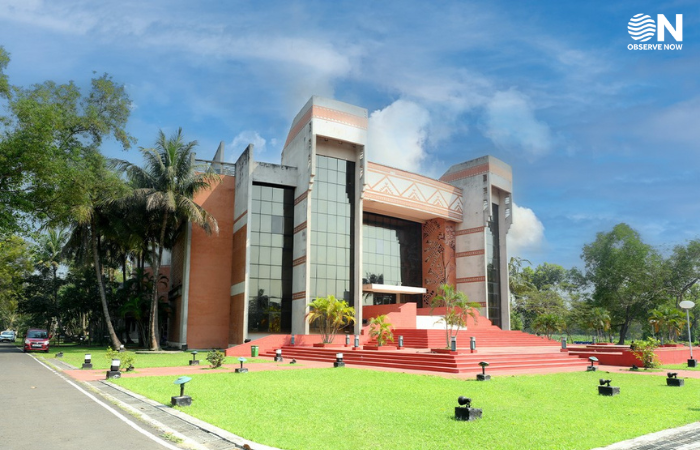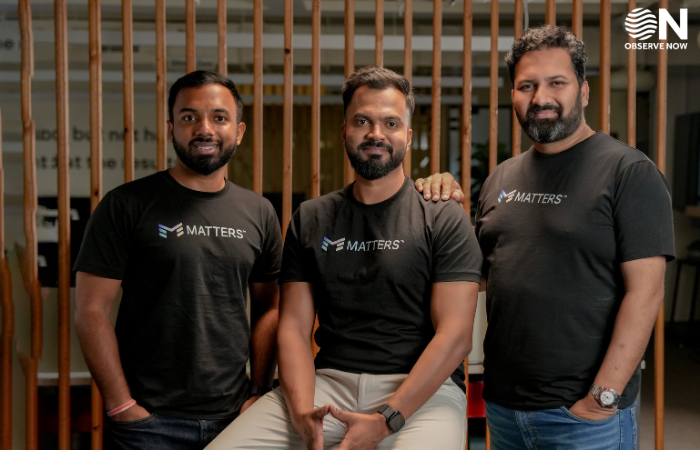Bangalore. October 15, 2025. Matters.AI, an AI-native data security company built in Bharat, today announced a ₹55 Crore fundraise to pioneer a new class of system, the AI Security Engineer. Unlike traditional security platforms that only monitor or alert, the AI Security Engineer is a self-learning system that understands how sensitive data behaves, predicts misuse before it happens, and responds autonomously across Cloud, SaaS, Endpoints, and On-Prem environments.
The ₹42 Crore Seed round was co-led by Kalaari Capital and Endiya Partners, with participation from Better Capital, Carya Venture Partners, and leading cybersecurity angels. The earlier ₹13 Crore Pre-Seed was led by Better Capital and Carya Venture Partners.
Funding will accelerate R&D in predictive detection, expand go-to-market operations in India and the US, and strengthen engineering and customer success teams serving regulated industries under the DPDP framework.
The Question That Started It All- Every CISO the founders met said the same thing: “I can’t even tell you where my sensitive data is right now.” That’s the reality of modern security. Across enterprises, over 90% of sensitive data remains invisible to security teams and what you can’t see, you can’t protect. Every day, analysts chase thousands of alerts, yet most real data threats slip through unnoticed. Legacy DLP and DSPM tools flood teams with noise, missing the signals that truly matter. And when an incident finally happens, the response is painfully slow. In a one-hour investigation, 80% of the time is wasted pulling logs, mapping access, and piecing together what went wrong, leaving only minutes to understand the actual threat.
Matters.AI was built to end that fatigue. It turns chaos into clarity, giving enterprises one autonomous system that can see, understand, and protect data everywhere, before damage is done.
It’s the system that thinks like an engineer. Unlike legacy tools that react after incidents, Matters.AI uses semantic graphs and predictive models to understand context and intent.
Full-Stack Visibility for a Complex World
● Endpoint visibility and control through real-time data tracing.
● Data lineage & fingerprinting to track how data moves and why.
● On-prem and SaaS deployments for hybrid enterprises.
● GenAI governance across ChatGPT, Gemini, and Copilot.
● Native integrations with Zoho, Snowflake, Salesforce, AWS, Azure, GCP, and Databricks.
With the Digital Personal Data Protection (DPDP) Act setting new benchmarks for accountability, organizations need real-time visibility into how sensitive data moves across environments. Matters.AI gives enterprises that clarity, built in Bharat, trusted worldwide.
Keshava Murthy, CEO & Co-Founder, said, “India has built rockets, payments, and softwares for the world, now we’re building to protect it. The world doesn’t need another dashboard screaming alerts; it needs a system that can think. That’s Matters.AI, the AI Security Engineer that never sleeps.”
Harsh Sahu, CTO & Co-Founder, said, “Our system “reasons” like a human engineer, learning from how people and data interact, predicting misuse, and responding autonomously.”
Dhiraj Khare, Chief Revenue Officer, said, “CISOs want clarity, not chaos. Matters.AI connects every data layer – endpoint, cloud, SaaS, Gen AI, On Prem into one control plane where visibility meets action.”
Sateesh Andra, Managing Director, Endiya Partners, added “Security teams tell us their biggest gap is between visibility and enforcement. Matters unifies discovery, lineage, and intent-aware controls into a single policy plane so organizations can prevent data exfiltration across cloud, SaaS, endpoints, and AI tools – while cutting alert noise. We’re delighted to co-lead this round with Kalaari Capital, and back Keshav, Harsh, and Dhiraj as they execute on this AI-native architecture.”
Sampath, Partner, Kalaari Capital, said “As privacy regulations tighten worldwide and AI adoption accelerates, enterprises face an urgent need for intelligent, autonomous data protection. Matters.AI is building the control layer for this new reality, a system that learns, adapts, and secures data while ensuring continuous compliance in an AI-driven world”
About Matters.AI
Matters.AI is the AI-native data-security platform that thinks like an engineer. By unifying DSPM, Insider Risk, DDR, Exfiltration Defense, and DLP into one intelligent layer, it understands what data means, who’s interacting with it, and why stopping threats before they become incidents.
Backed by Kalaari Capital, Endiya Partners, Better Capital, and Carya Venture Partners, Matters.AI protects enterprises across India and the world.
Learn more at www.matters.ai




















